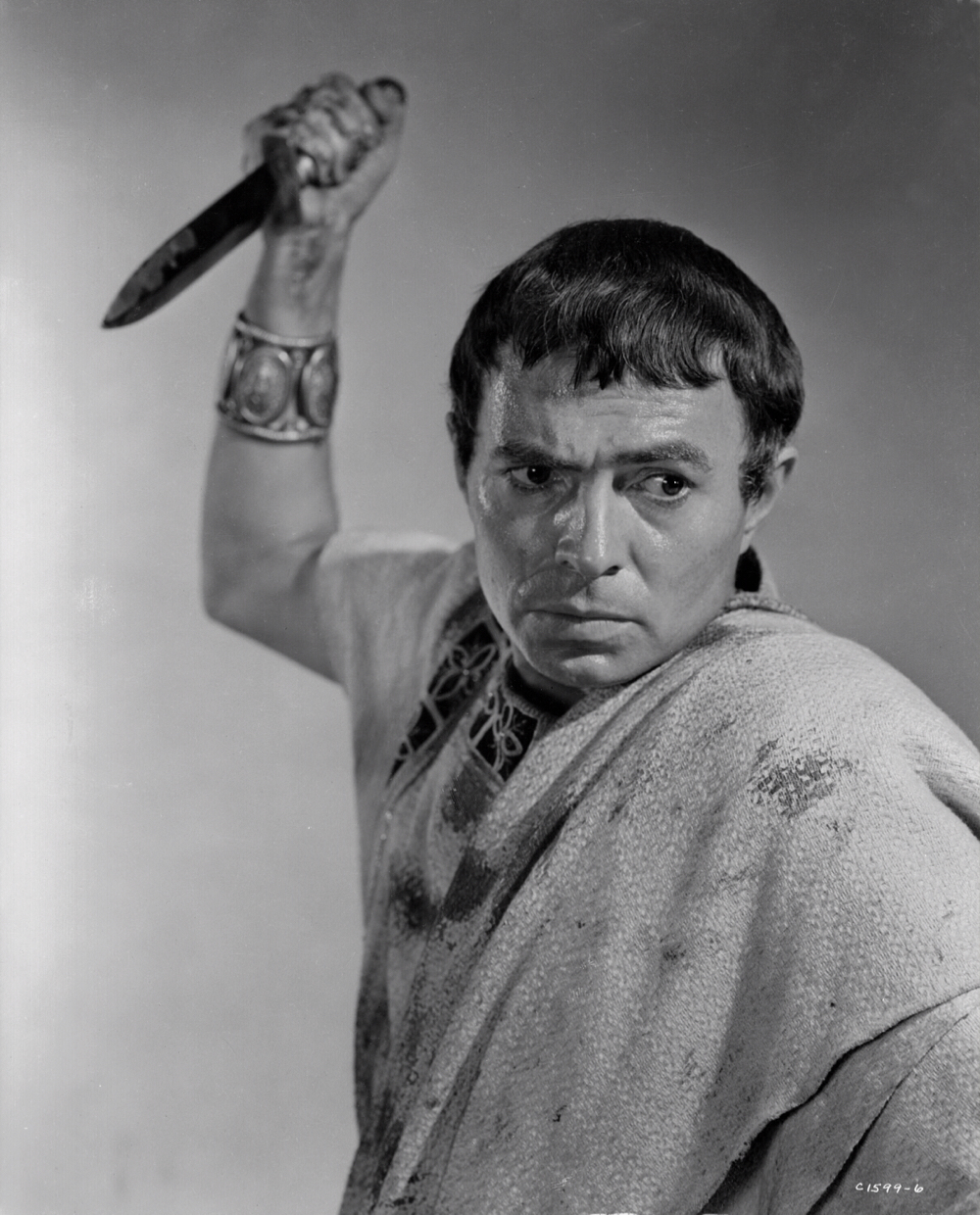Upon watching the two episodes of Rome, I was surprised by the continual following and showing of Brutus's actions leading up to his betrayal of Caesar. I felt as if I were viewing a personal journey of his towards becoming a 'hero' of Rome, and that the show itself was trying to make its audience contemplate his and his allies actions versus Caesar. Servilia, Brutus's mother, was eerily snakelike and I found her to be almost insane, especially in the antagonistic relationship between her and her son and her alliance with Pompey's son.
It was interesting to see how Rome's interpretation of Caesar's life and death differed and converged from the other sources we were given (journal articles and Plutarch's stories). I particularly enjoyed picking out the inclusion of Brutus working with Pompey despite his role in the death of his father, and the inclusion of other characters mentioned in Plutarch's lives of Antony and Brutus. The scene where Brutus begs for Caesar to believe his innocence against the writing of the posted letter directly referenced the words of Plutarch, who implied that even in battle, Caesar did everything possible to spare Brutus. I felt Caesar's love for his friend consistent and human, despite Brutus's turmoil over what side he should choose.
Overall, I thought the show was a great way to visualize the events leading up to Caesar's death, as well as showcase the anger and conviction of his murderers. It seems to beg the question of the price of power, and the price of choice (characterized through Brutus's indecision and fear).
https://allhailtheblackmarket.com/wp-content/uploads/2017/03/070-james-mason-theredlist.jpg
Showing posts with label Plutarch. Show all posts
Showing posts with label Plutarch. Show all posts
Sunday, March 18, 2018
Tuesday, March 6, 2018
SAVAGE
Plutarch's Marcus Brutus pg. 596-597--
"A terrible and strange appearance... of a ... body... [says] 'i am your evil genius...' to which Brutus, not at all disturbed, replied, 'then i shall see you.'"
This struck me as very bold of him. There is this unrecognizable figure in front of him telling him he is "his evil genius" and he basically nonchalantly says "i don't give a fuck". This is unusual, i feel, due to the way he seemed to be very interested and invested in things he did or was a part of. (pg.582)
i dont fuck with you
Sunday, March 4, 2018
Caesar, The GOAT
“there was
no danger to which he did not willingly expose himself, no labour from which he
pleaded an exemption.” (Plutarch 210)
I believe
this quote is important because it shows Caesar as a fearless, and brave
leader. It goes along with a general theme of the text that Caesar was a
leader, and not just some guy who bossed everyone around without getting his
hands dirty.
Plutarch.
Plutarch's Lives of Illustrious Men. The J.C. Winston Co., 1908.
Subscribe to:
Posts (Atom)

